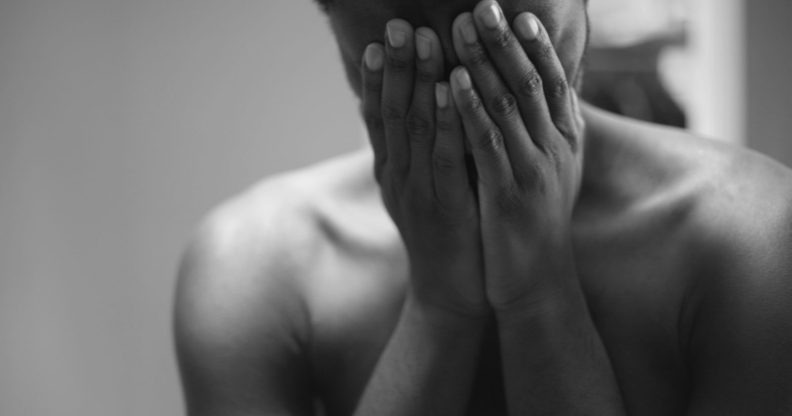Here’s why men can feel sad after sex

(Pexels)
Men can experience feelings of sadness, irritability or other negative feelings after sex, research has shown.
The study, led by the Queensland University of Technology in Brisbane, Australia, found men can experience postcoital dysphoria, a term used to describe feelings of tearfulness, anxiety and agitation after intercourse.
Researchers analysed the responses of more than 1,200 men to an online survey, which asked them if they had ever experienced symptoms of PCD following satisfactory, consensual sex.
The men were aged between 18 and 81 and were based in Australia, the United States, the UK, Russia, New Zealand, Germany and 72 other countries.
The results showed 41 percent of men reported experiencing PCD in their lifetime and 20 percent reported experiencing it in the previous four weeks.
Between three and four percent of those who responded said they experienced PCD on a regular basis.

“Consensual sexual activity is believed to be associated with a positive emotional experience, however, postcoital dysphoria (PCD) is a counter-intuitive phenomenon characterised by inexplicable feelings of tearfulness, sadness, or irritability following otherwise satisfactory consensual sexual activity,” the researchers wrote.
“Prevalence of PCD has been reported among females, but not among males.”
The study, published in the Journal of Sex & Marital Therapy, found PCD was associated with “current psychological distress, childhood sexual abuse, and several sexual dysfunctions.”
Sexual abuse in childhood was reported by 12.7 percent of the men and sexual abuse in adulthood was reported by 3.5 percent of the men.
Their most common reported mental health concern was depression (36.9 percent), followed by anxiety (32.5 percent) and bipolar disorder (3 percent).
Previous research carried out by the Queensland University of Technology in Australia, published in 2015, found PCD is common among women.
More than 200 women aged 18 to 55 were asked to take part in a survey about their experiences of PCD.
Of those polled, 46 percent said they had experienced PCD in the past and around five percent said they had experienced the symptoms over the previous month.
Two percent reported having PCD “always” or “most of the time.”

